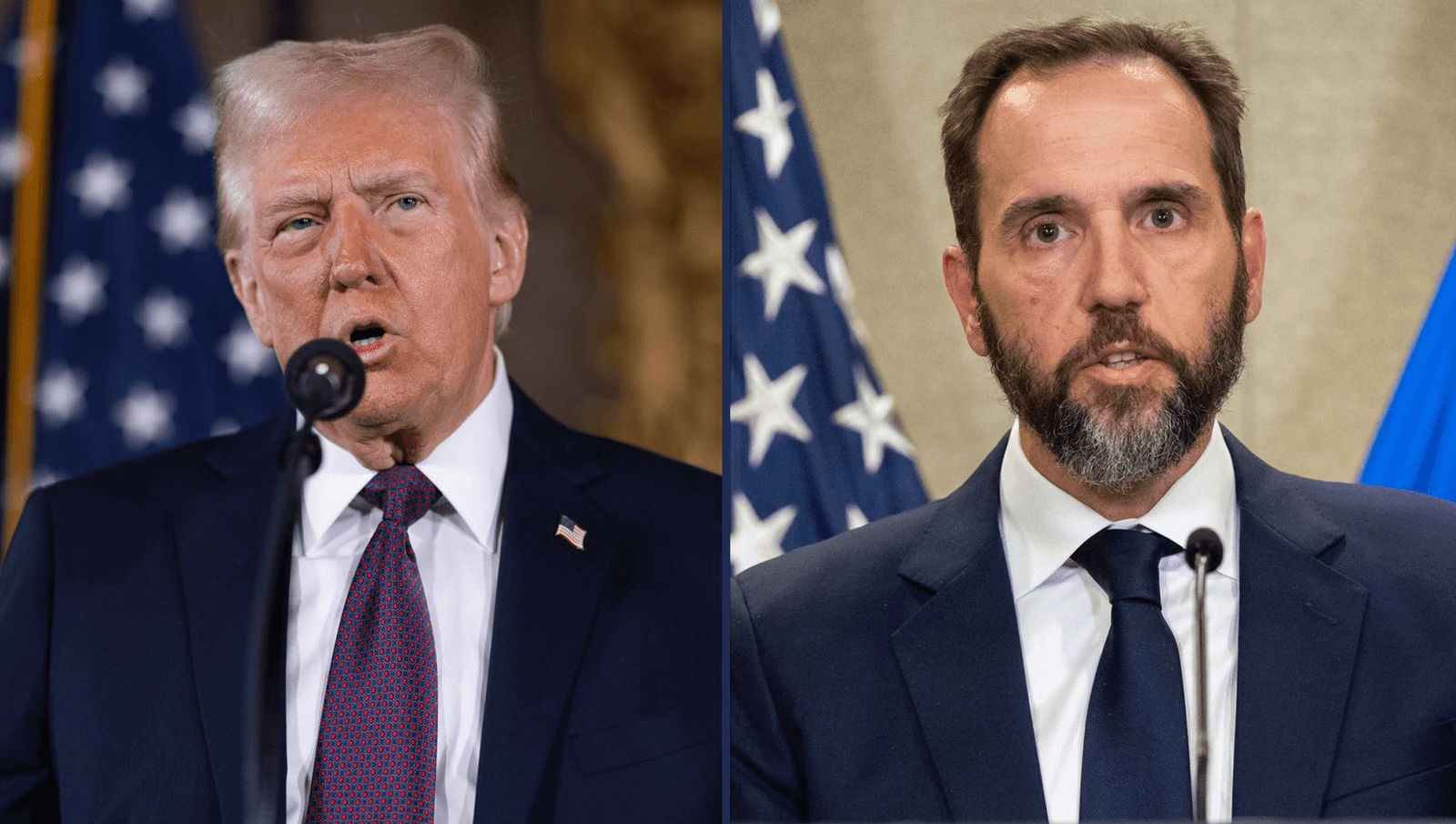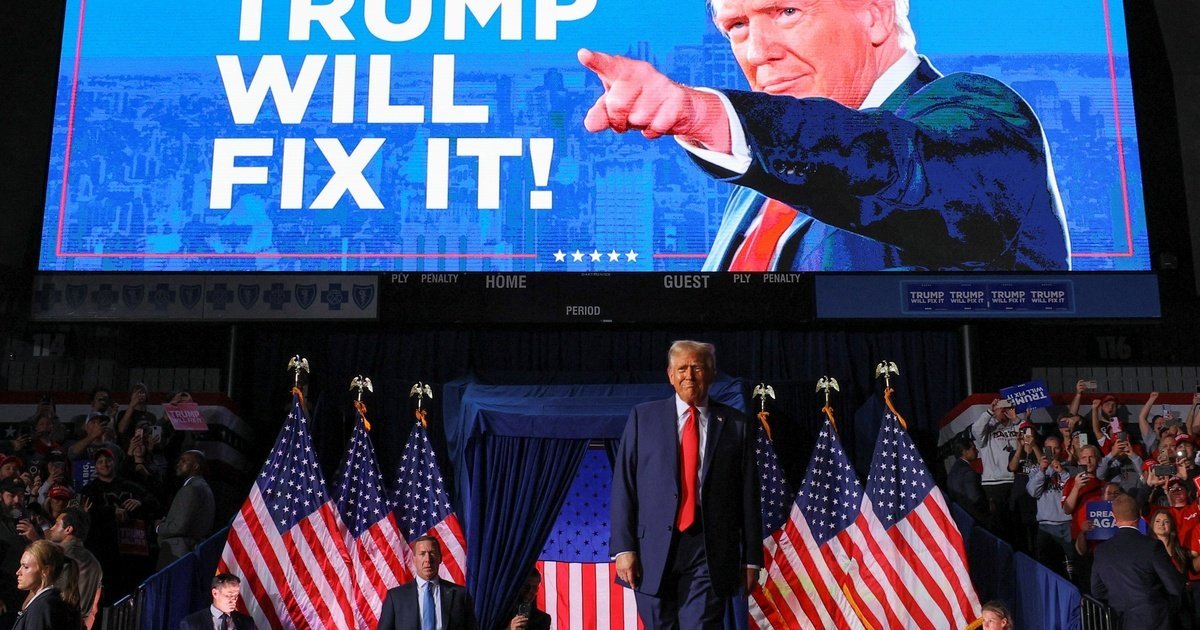A special counsel report recently released has further intensified the political and legal fallout from former President Donald Trump’s actions surrounding the 2020 presidential election. The report highlights what it describes as Trump’s “criminal efforts to retain power,” shedding new light on the controversial actions taken by the former president and his allies in the aftermath of his election defeat. The investigation, led by special counsel Jack Smith, delves into the events that transpired before and after the election, particularly focusing on Trump’s attempts to overturn the results.
The Background of the Investigation
The 2020 presidential election was one of the most contentious in modern U.S. history. After the votes were counted, Joe Biden was declared the winner, securing the necessary electoral votes and defeating Trump by a substantial margin. However, Trump and many of his supporters refused to accept the results, leading to widespread claims of election fraud, despite a lack of credible evidence.
Trump’s claims of a “stolen” election prompted numerous legal battles and challenges to the outcome, but each effort to contest the results was swiftly rejected by courts, many of which were overseen by judges appointed by Trump himself. Despite this, Trump continued to insist that he had won and engaged in a series of actions to subvert the outcome. The special counsel report seeks to provide an in-depth examination of these actions, detailing the lengths to which Trump went in his attempts to retain power.
Key Findings from the Special Counsel Report
The report condemns Trump’s actions as part of a concerted effort to reverse the election’s outcome. Several specific actions are highlighted as being particularly egregious:
- Pressure on State Officials: The report details how Trump pressured state officials, especially in key battleground states, to “find” votes that would favor him. One of the most infamous incidents cited is Trump’s call to Georgia Secretary of State Brad Raffensperger, asking him to “find” enough votes to overturn the state’s results. This pressure campaign, according to the report, was an attempt to subvert the democratic process and the will of the voters.
- The Fake Electors Scheme: Another key finding is the orchestration of a scheme to send fake electors to the U.S. Capitol, with the aim of replacing Biden’s legitimate electors with those loyal to Trump. This effort was part of a broader strategy to create chaos and undermine the certification of the electoral results in Congress. The report paints this as an illegal and deceptive tactic intended to destabilize the democratic process.
- The January 6th Capitol Riot: The most consequential and widely reported aspect of Trump’s post-election actions was his role in inciting the January 6th Capitol riot. The report emphasizes Trump’s responsibility in encouraging the violence that occurred on that day. According to the findings, Trump’s rhetoric and refusal to concede the election played a significant role in motivating the mob of his supporters who stormed the Capitol building, leading to deaths, injuries, and significant damage. The report suggests that Trump’s conduct in the lead-up to the insurrection was part of a broader criminal effort to stay in power.
- Attempts to Influence the Department of Justice: The special counsel report also documents Trump’s efforts to influence the Department of Justice and use it to further his goals of overturning the election results. In a dramatic example, Trump reportedly sought to install a loyalist as acting Attorney General who would pursue baseless fraud claims and support his efforts to delegitimize the election outcome.
- False Claims of Election Fraud: The report underscores Trump’s repeated dissemination of false claims about the election. Even after being presented with evidence showing no significant fraud or irregularities, Trump continued to make public statements asserting that the election had been “stolen.” These claims not only misled the American public but also served as a rallying cry for his supporters, further dividing the country and undermining confidence in the electoral system.
Legal and Political Implications
The release of the special counsel’s report has significant legal and political consequences for Donald Trump. The findings lend weight to ongoing criminal investigations that are examining Trump’s conduct surrounding the 2020 election. While Trump has continued to deny any wrongdoing and maintain that his actions were within his legal rights, the report’s conclusions suggest that many of his efforts may have crossed the line into criminal activity.
One of the most pressing questions raised by the report is whether Trump will face charges as a result of his actions. Legal experts are divided on this issue, but the evidence presented in the report will likely factor into ongoing decisions by federal prosecutors about whether to pursue criminal charges against the former president. Trump faces potential charges related to obstruction of justice, conspiracy, and incitement, among others, though his legal team has strongly rejected any claims of criminal behavior.
In addition to the legal ramifications, the report has the potential to further tarnish Trump’s political future. The findings may energize his critics and complicate his efforts to run for office again in 2024. Despite the ongoing investigations and controversies surrounding his actions, Trump remains a dominant figure in the Republican Party, and many of his supporters continue to rally around him. However, the report’s findings could fuel further divisions within the GOP and raise new questions about Trump’s fitness for public office.
Public and Political Reactions
The special counsel report has sparked a wide range of reactions from both sides of the political spectrum. Trump’s supporters have dismissed the report as politically motivated and argue that the former president was merely exercising his rights to challenge the election results. They contend that no criminal activity occurred and that the report represents a partisan attack on Trump’s presidency.
Conversely, critics of Trump, including many Democrats and independent observers, have expressed outrage at the findings. They argue that Trump’s actions represent a clear abuse of power and an affront to American democracy. Many are calling for accountability, urging law enforcement to take appropriate legal action based on the report’s conclusions.
The report has also been met with a strong response from advocacy groups, particularly those focused on election integrity and civil rights. These groups stress that Trump’s actions, as outlined in the report, were part of a broader effort to undermine the democratic process and deprive Americans of their right to choose their leaders freely.
The release of the special counsel’s report condemning Trump’s “criminal efforts to retain power” in 2020 marks a pivotal moment in the ongoing debate over accountability and justice in the U.S. political system. The findings shed new light on the extent to which Trump and his allies attempted to subvert the democratic process and retain power despite losing the election.
As the legal and political fallout from the report continues to unfold, it remains unclear what specific consequences Trump will face. However, the report’s findings reinforce the need for accountability in order to preserve the integrity of the U.S. democratic system. Whether or not Trump faces legal consequences, the report’s revelations will undoubtedly shape the future of American politics and continue to fuel the broader conversation about the proper limits of executive power and the importance of upholding election results.









